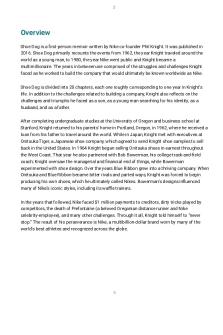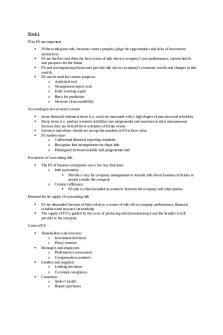Strange meeting summary and analysis notes PDF

| Title | Strange meeting summary and analysis notes |
|---|---|
| Author | sreelakshmi Dhaneesh |
| Course | English language and literature |
| Institution | University of Calicut |
| Pages | 1 |
| File Size | 28.1 KB |
| File Type | |
| Total Downloads | 39 |
| Total Views | 144 |
Summary
Strange Meeting is a poem about reconciliation. Two soldiers meet up in an imagined Hell, the first having killed the second in battle. Their moving dialogue is one of the most poignant in modern war poetry. Wilfred Owen fought and died in WW1, being fatally wounded just a week before the war ended ...
Description
Strange Meeting by Wilfred Owen
Summary Last Updat ed on May 5, 2015, by eNot es Edit orial. Word Count : 468 “St range Meet ing” is probably Owen’s most celebrat ed poem. He may have t aken his t it le from a line in The Revolt of Islam (1818), a poem by t he Brit ish Romant ic poet Percy Bysshe Shelley. In Shelley’s poem, t wo warriors are reconciled in life, but Owen’s poem is more pessimist ic: His soldiers can become friends only aft er bot h have died and are no longer fight ing for t heir respect ive count ries, England and Germany. Owen implies t hat as long as men and women live, t hey will fight wars. T he t unnel down which t he speaker escapes in t he first st anza could be a t rench, t he speaker’s unconscious, or t he classical underworld, where people were supposedly sent aft er deat h. Owen describes t his t unnel as having been “scooped” by many wars t o indicat e t hat what he has t o say in t his poem applies to wars t hroughout t he ages, not merely t o World War I. People have always realized t oo lat e t hat t he so-called enemy was really a friend, no mat t er how st range or foreign t hat enemy may have seemed at first . Owen’s use of off-rhymes emphasizes t he digging pain of war (“groined” and “groaned”) and forces readers t o see t he lines t hat deat h et ches int o human faces (“grained” and “ground”). At t he same t ime, t he fact t hat t hese words almost rhyme suggest s t hat t hese sworn enemies are really very much alike in t heir vulnerabilit y t o pain and in t heir shared mort alit y. T he speaker realizes t hat he and his enemy shared t he same hopes while alive and t hat each was, in a sense, t he ot her’s hope: Each might have made t he ot her man laugh in fellowship; each might have done somet hing, if he had lived, t o make t he world a bet t er place for ot hers. Perhaps most import ant , each might have t old ot hers about t he t rut h of war, about how unglorious and merely wast eful deat h is. Inst ead, bot h men are now dead, and t he t rut h about war will die wit h t hem. T he ignorant people back home who do not realize t he t rue horror of war will only cont inue t he meaningless fight ing. T hey will be quick t o act , but quick in t he sense of rash and fierce, like a mindless animal “swift wit h swift ness of t he t igress.” T hey will go looking for grand advent ure, but by going t o war t hey will make a journey back int o barbarism, a “t rek from progress.” T he poem ends wit h t he st range friend suggest ing t hat he and t he speaker, now t hat t hey have fought and killed each ot her, should now go to sleep. At least in deat h, t hey are at peace. Fort unat ely, t he t rut h about t he horror of war does not have t o die wit h t hem. Owen’s poem conveys it and suggest s t hat readers t ake pit y on ot her people and on t hemselves—before it is t oo lat e....
Similar Free PDFs

'STRANGE MEETING' An analysis by
- 9 Pages

Argument Analysis summary notes
- 9 Pages

Video analysis of IEP Meeting
- 2 Pages

Middlesex Summary and Analysis
- 24 Pages

Greenlights Summary and Analysis
- 35 Pages

Beartown Summary and Analysis
- 48 Pages

Americanized Summary and Analysis
- 55 Pages

Summary and Analysis Apology
- 9 Pages

Dawn Summary and Analysis
- 76 Pages

Strange situation
- 2 Pages

Passing Strange
- 5 Pages

Shoe Dog Summary and Analysis
- 41 Pages
Popular Institutions
- Tinajero National High School - Annex
- Politeknik Caltex Riau
- Yokohama City University
- SGT University
- University of Al-Qadisiyah
- Divine Word College of Vigan
- Techniek College Rotterdam
- Universidade de Santiago
- Universiti Teknologi MARA Cawangan Johor Kampus Pasir Gudang
- Poltekkes Kemenkes Yogyakarta
- Baguio City National High School
- Colegio san marcos
- preparatoria uno
- Centro de Bachillerato Tecnológico Industrial y de Servicios No. 107
- Dalian Maritime University
- Quang Trung Secondary School
- Colegio Tecnológico en Informática
- Corporación Regional de Educación Superior
- Grupo CEDVA
- Dar Al Uloom University
- Centro de Estudios Preuniversitarios de la Universidad Nacional de Ingeniería
- 上智大学
- Aakash International School, Nuna Majara
- San Felipe Neri Catholic School
- Kang Chiao International School - New Taipei City
- Misamis Occidental National High School
- Institución Educativa Escuela Normal Juan Ladrilleros
- Kolehiyo ng Pantukan
- Batanes State College
- Instituto Continental
- Sekolah Menengah Kejuruan Kesehatan Kaltara (Tarakan)
- Colegio de La Inmaculada Concepcion - Cebu



